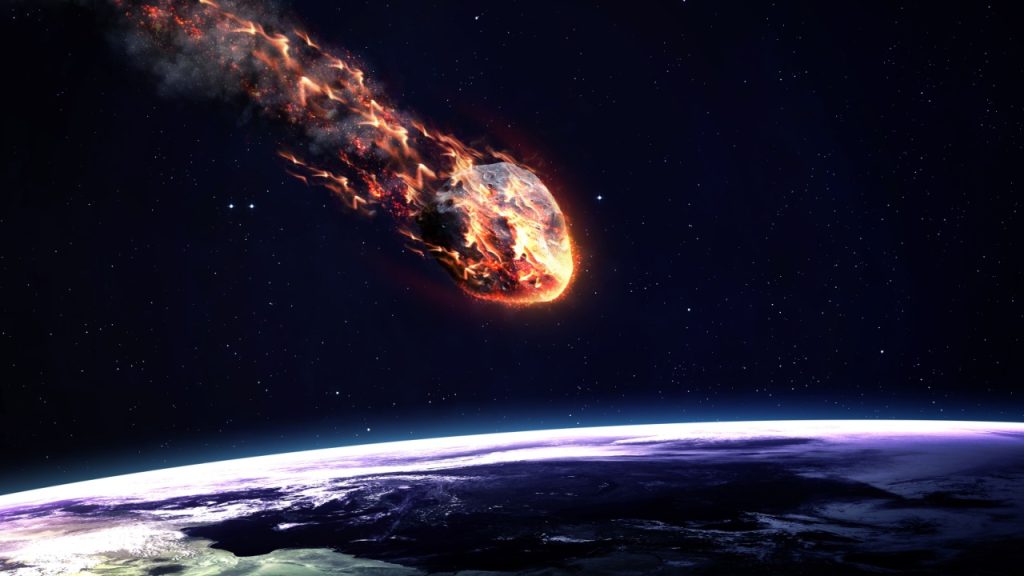The impact of an asteroid on Earth is a terrifying yet fascinating scenario. While such an event is rare, its consequences could be catastrophic. Let’s explore 15 frightening possibilities that could unfold if a large asteroid were to collide with our planet.
Massive Shockwaves Would Ripple Across the Globe
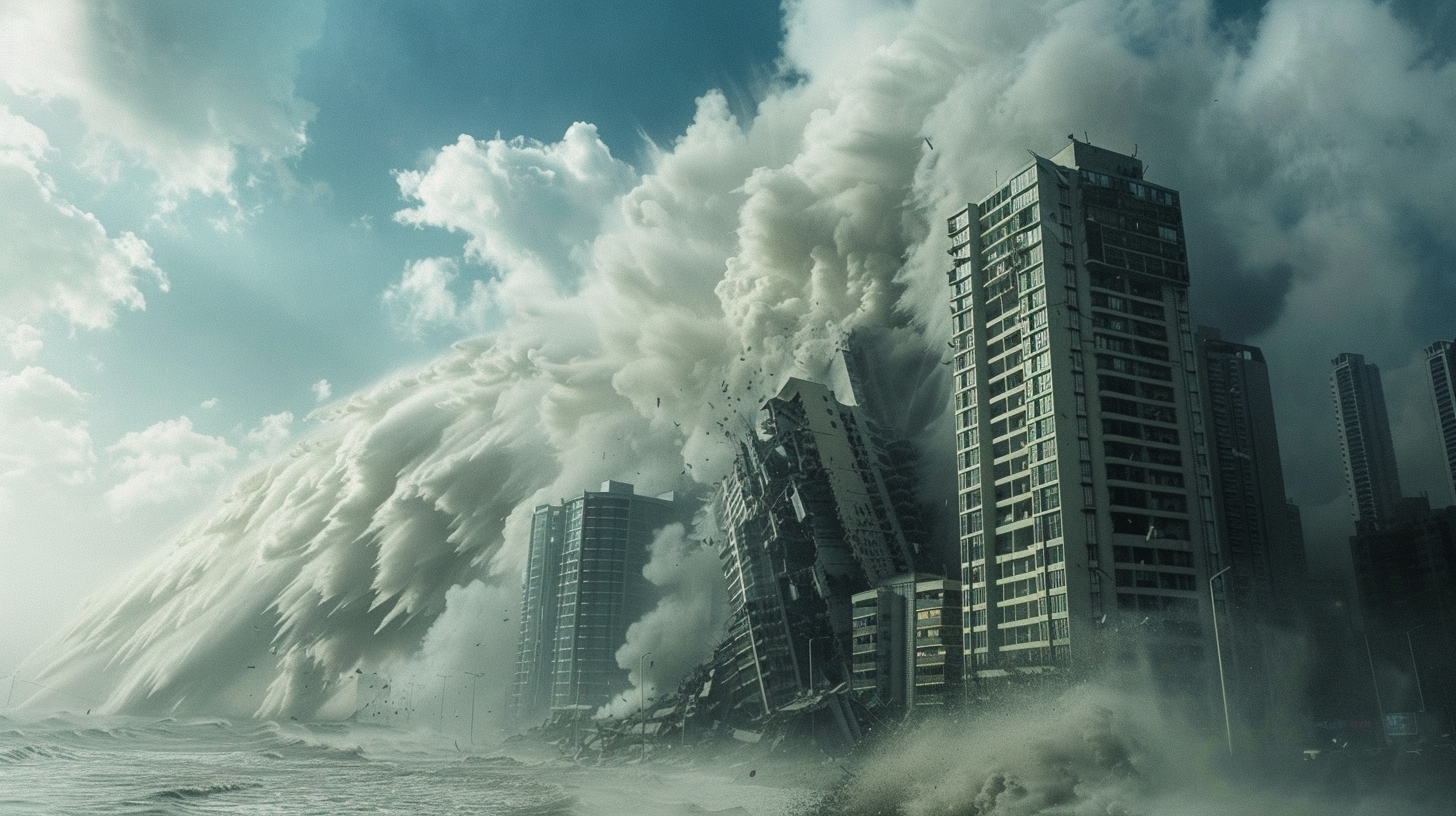
If an asteroid hit Earth, the initial impact would create enormous shockwaves. These waves would travel through the planet’s crust, causing widespread destruction. Buildings would crumble, and the ground would shake violently for hundreds of miles around the impact site. The energy released would be far greater than any earthquake we’ve ever experienced.
Fiery Debris Would Rain From the Sky
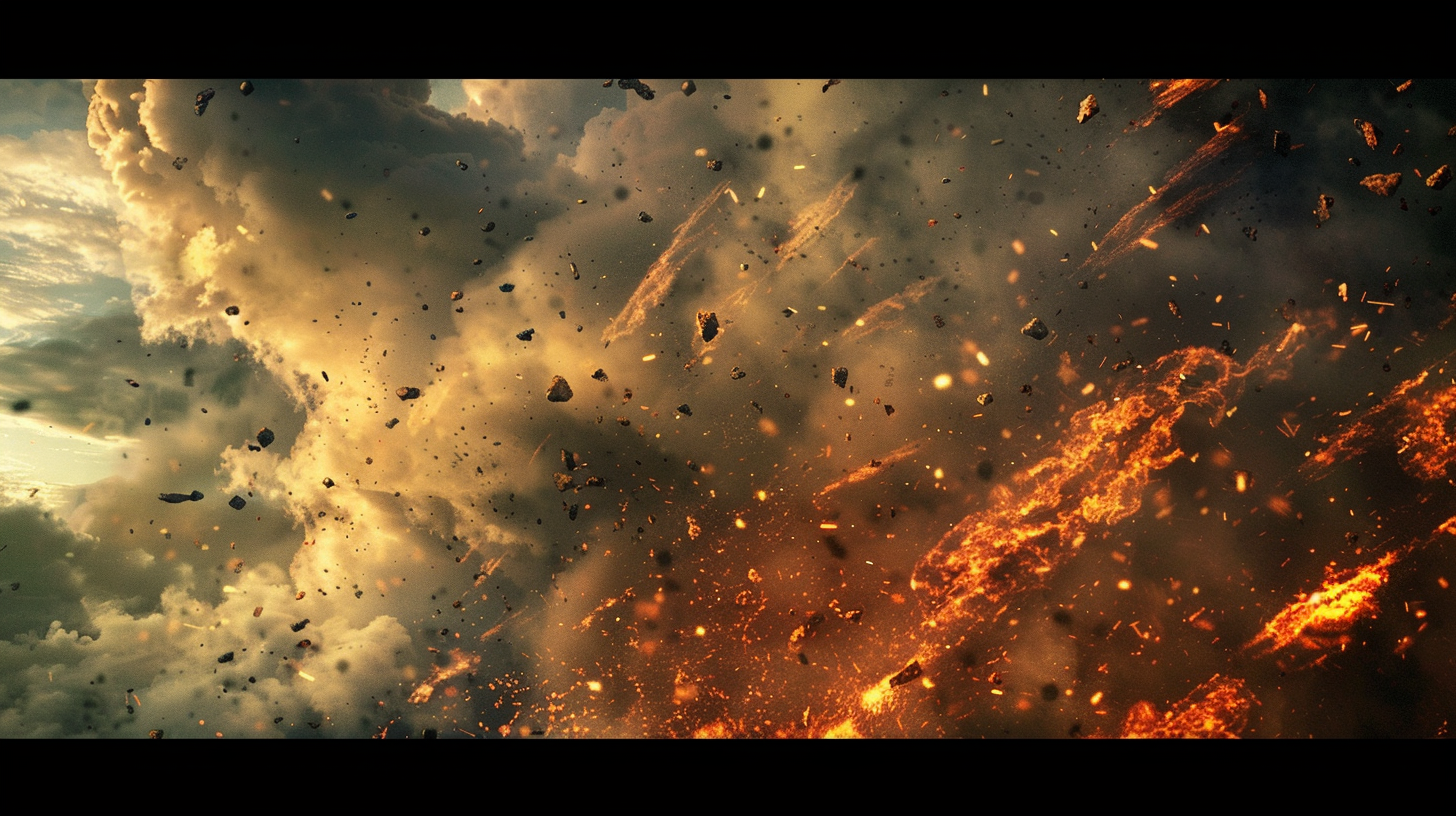
The collision would send huge amounts of debris flying into the atmosphere. As this material fell back to Earth, it would heat up, creating a rain of fire. This firestorm could ignite wildfires across vast areas, destroying forests and cities alike. The heat and flames would pose an immediate threat to life in the affected regions.
Tsunamis Would Swallow Coastal Areas
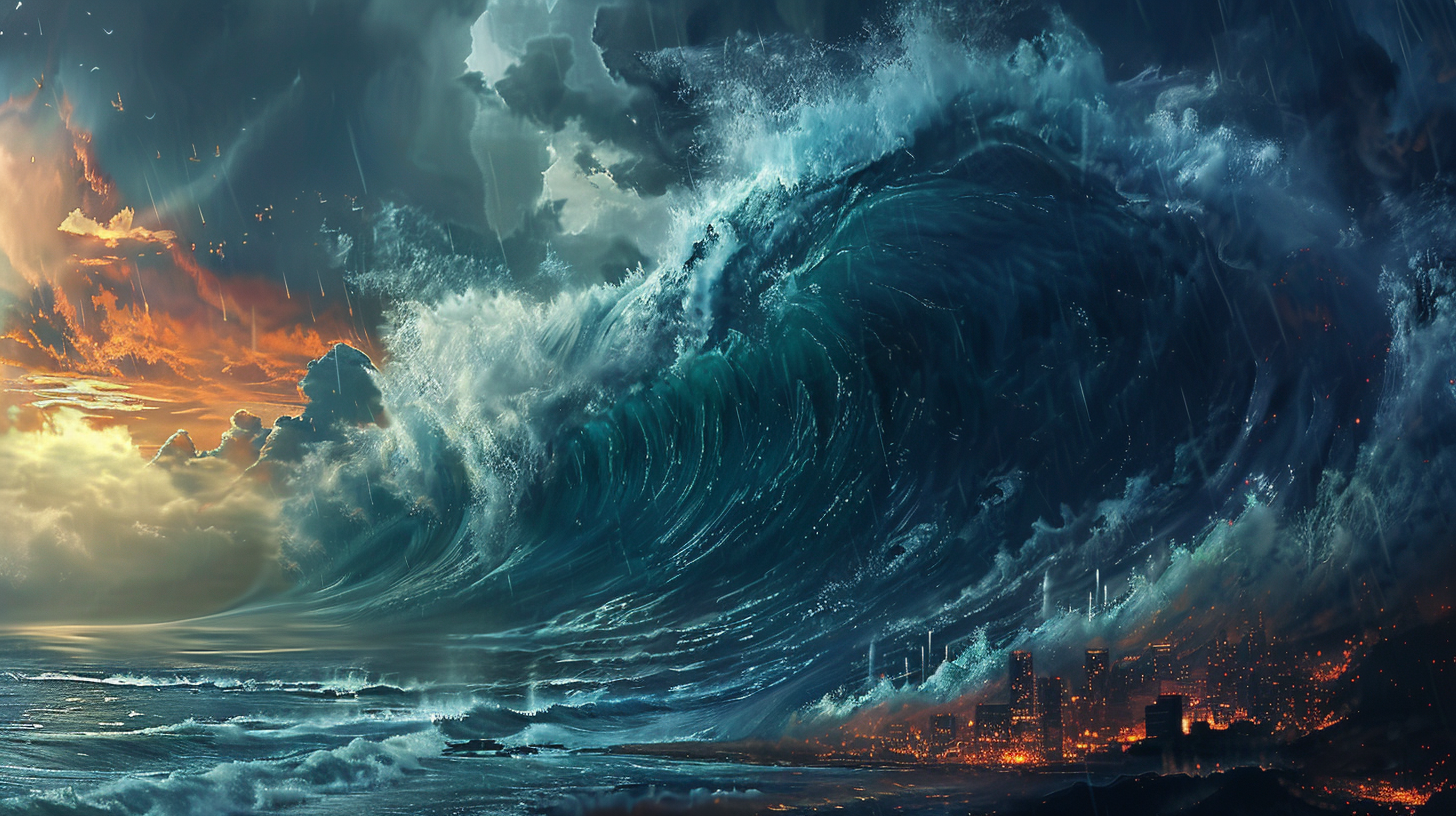
If the asteroid struck an ocean, it would create massive tsunamis. These giant waves could reach heights of hundreds of feet, dwarfing any tsunami we’ve seen before. Coastal cities and low-lying areas would be completely submerged. The destruction would reach far inland, reshaping coastlines and causing untold damage.
Thick Dust Would Block Out the Sun
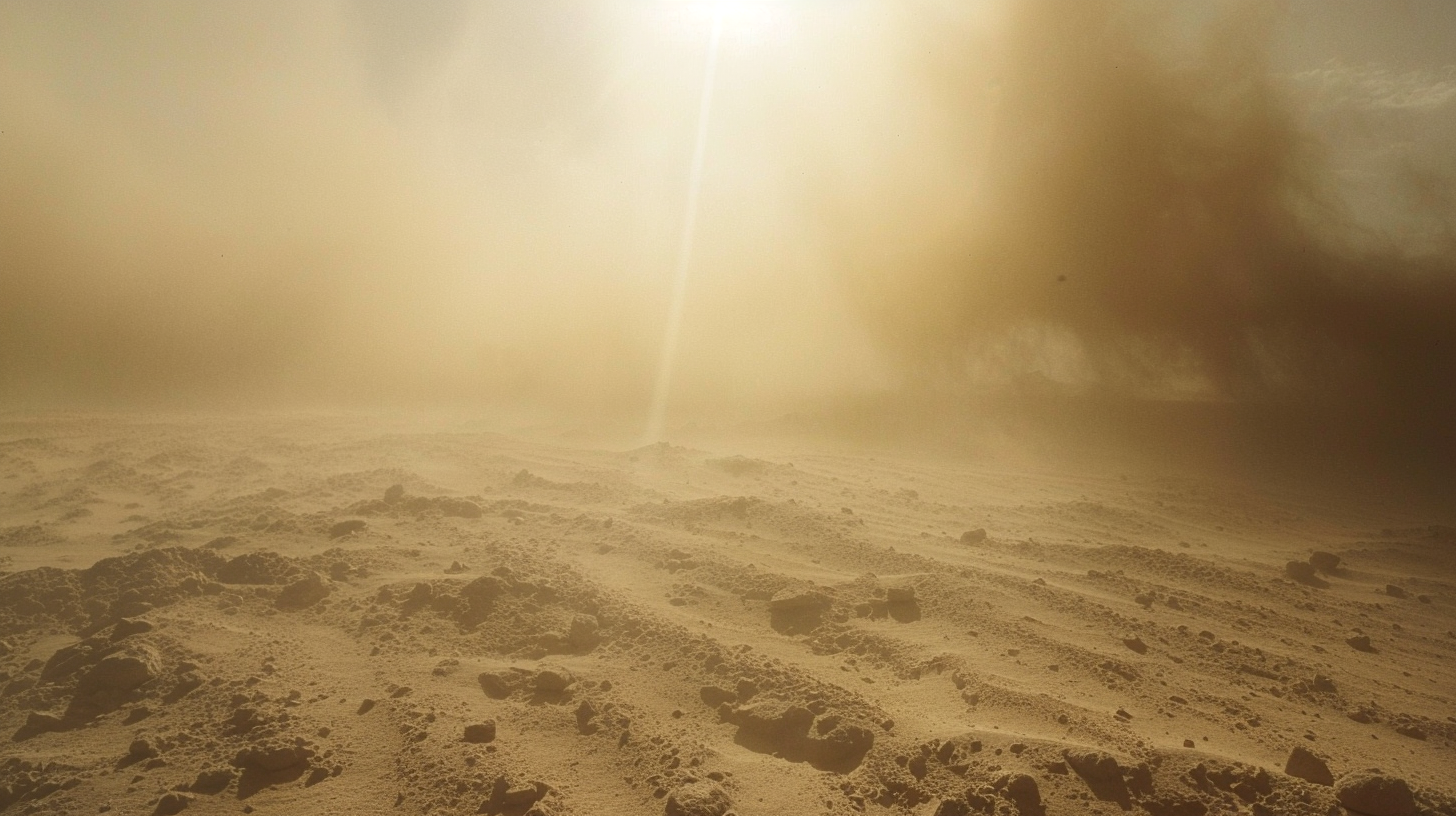
The impact would throw enormous amounts of dust and debris into the atmosphere. This thick layer would block out sunlight, plunging the Earth into darkness. Without adequate sunlight, temperatures would drop dramatically. Plants would struggle to grow, affecting the entire food chain. This “impact winter” could last for months or even years.
Global Temperatures Would Plummet
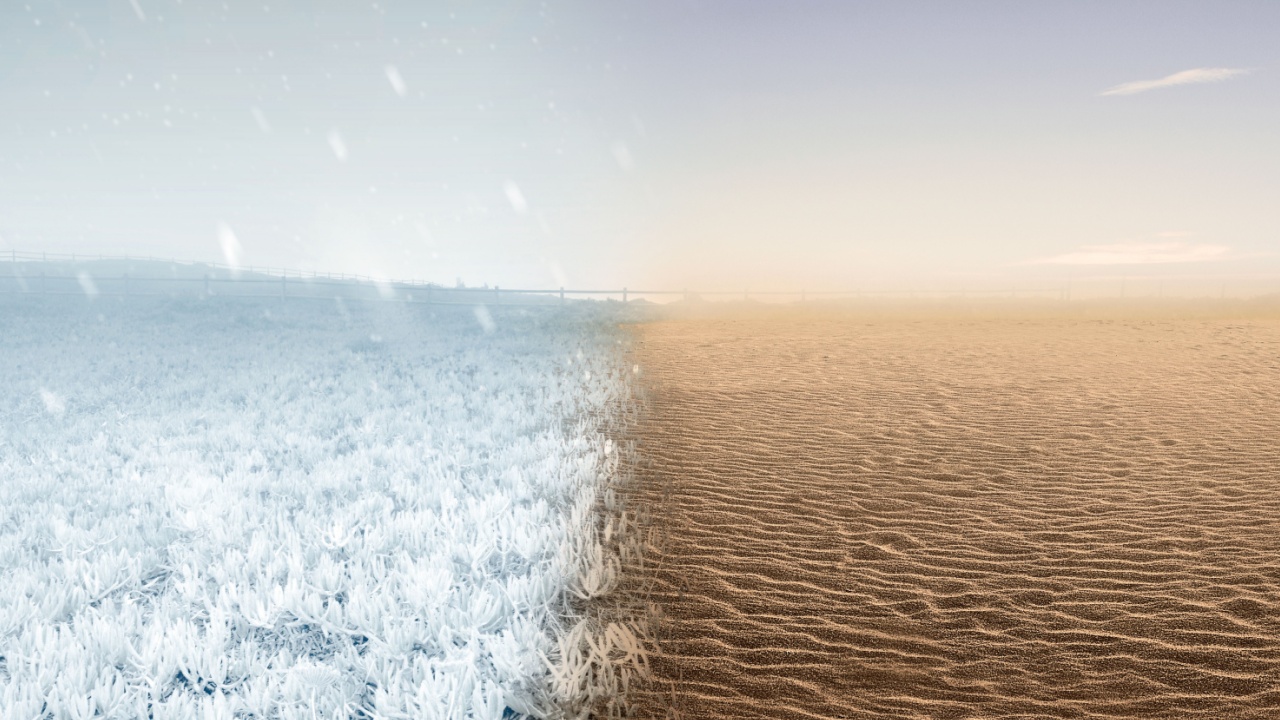
With the sun’s warmth blocked by dust, Earth would experience a rapid cooling. This sudden drop in temperature would be like a mini ice age. Crops would fail, and many species would struggle to survive in the new, colder climate. The effects could last for years, dramatically altering ecosystems worldwide.
Acid Rain Would Poison Water Sources
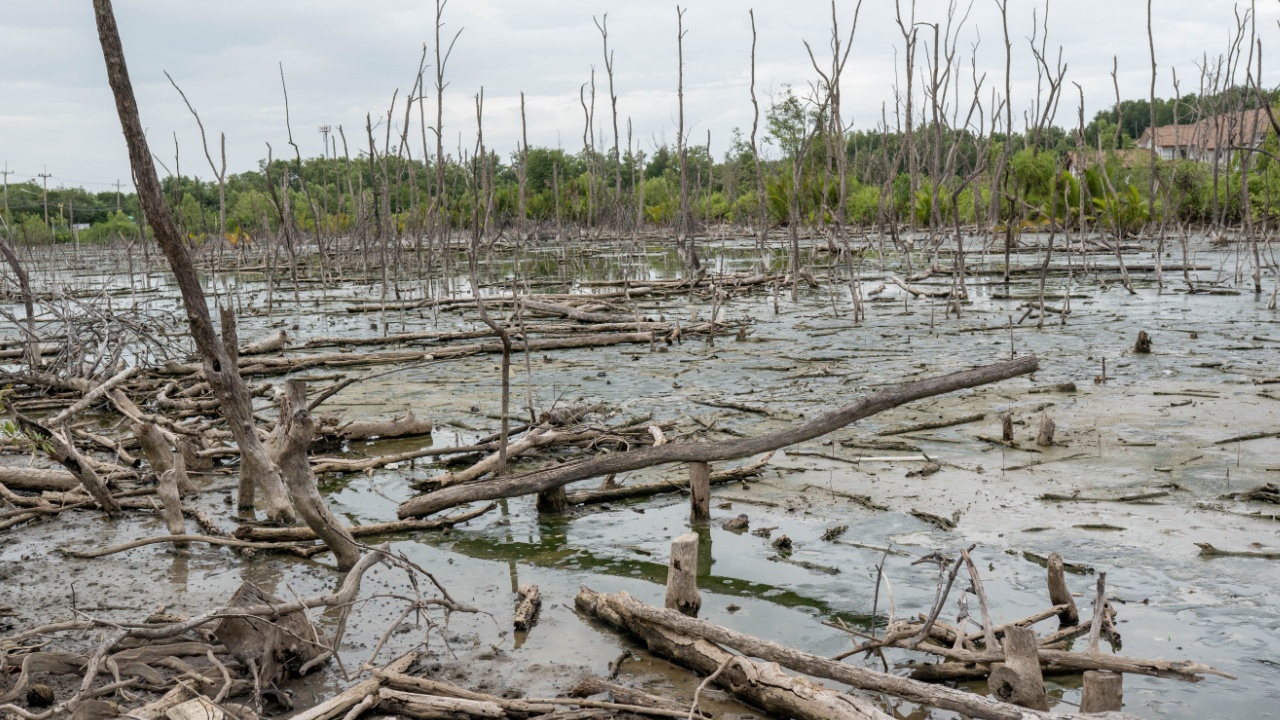
The asteroid impact would release large amounts of sulfur and nitrogen into the atmosphere. These chemicals would combine with water vapor to form acid rain. This toxic rainfall would contaminate rivers, lakes, and soil. It could make water undrinkable and harm plants and animals, disrupting entire ecosystems.
The Earth’s Rotation Might Change
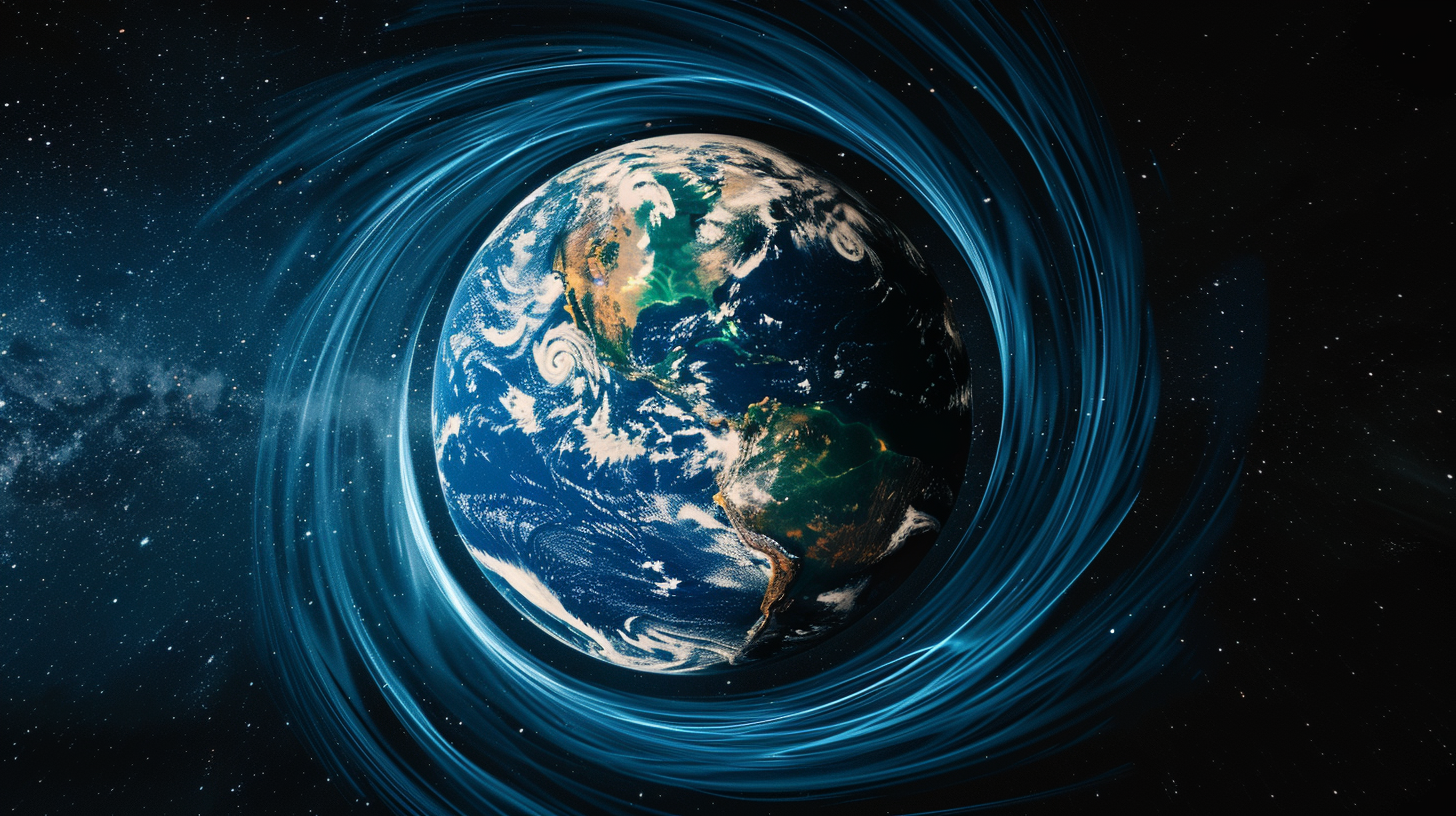
A massive asteroid strike could actually affect the Earth’s rotation. The impact might cause the planet to wobble on its axis or even shift its tilt slightly. While these changes might be small, they could lead to alterations in our climate patterns and the length of our days.
Widespread Fires Would Pollute the Air
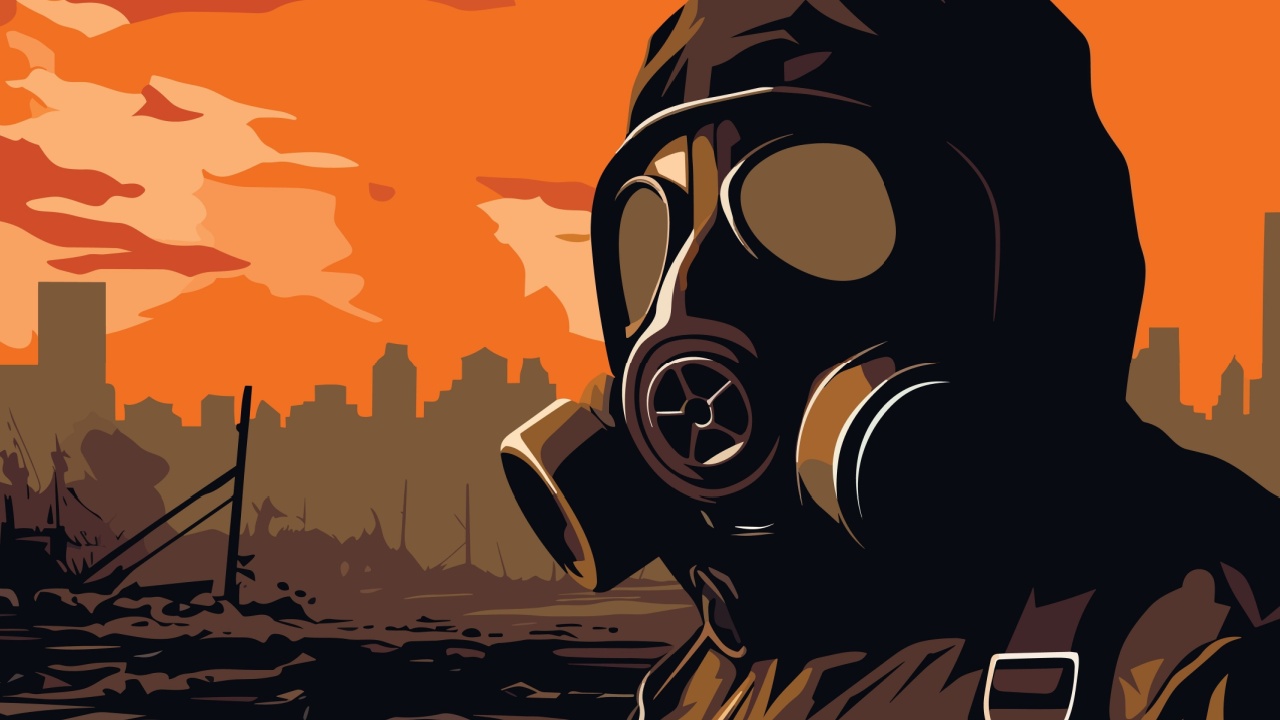
The heat from the impact and falling debris would start fires across large areas. These fires would release huge amounts of smoke and toxic gases into the air. The pollution would make breathing difficult and could cause long-term health problems for survivors.
Earthquakes Would Reshape the Land
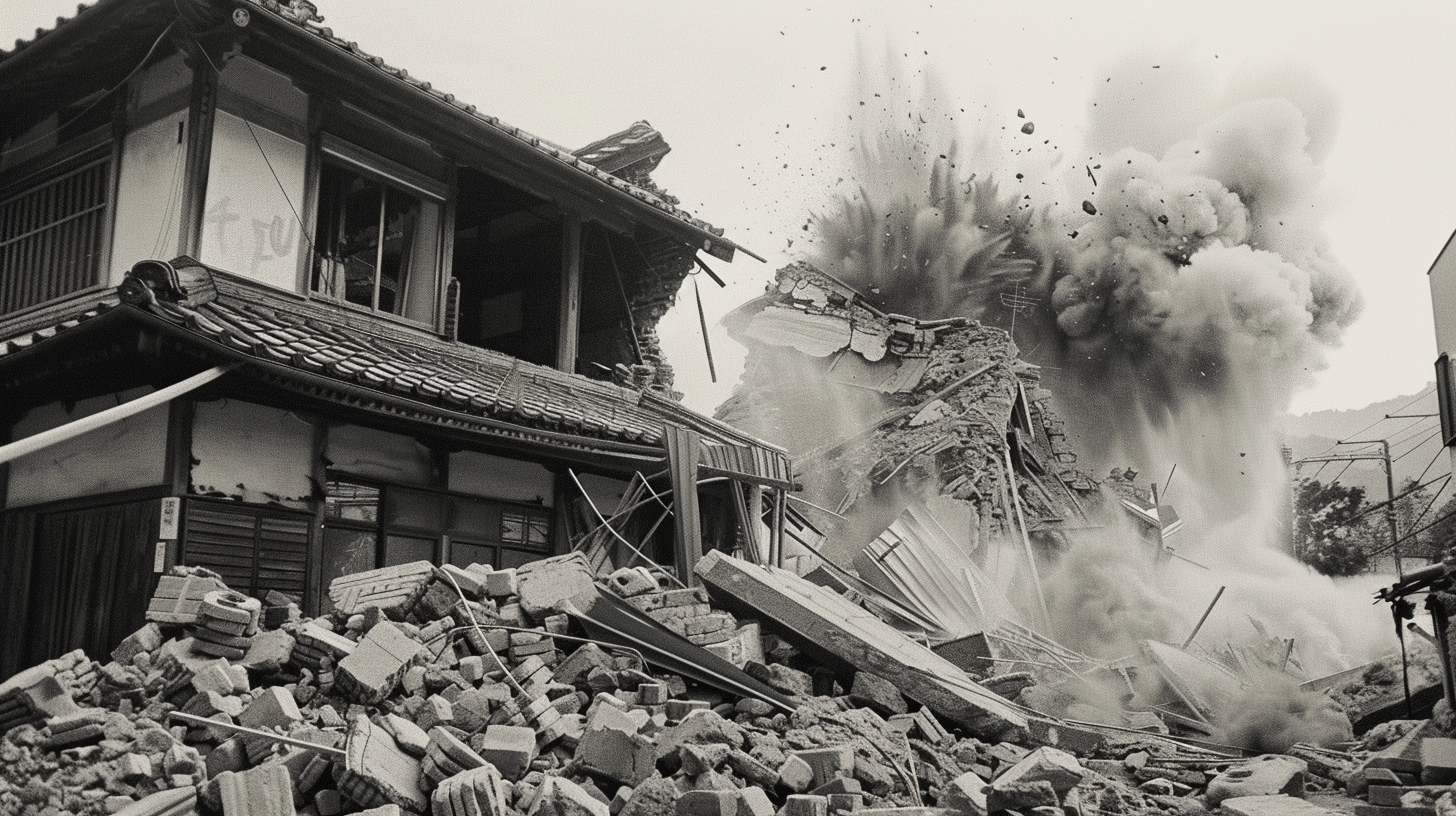
The force of the impact would trigger powerful earthquakes. These quakes could topple buildings, create chasms in the earth, and trigger landslides. The tremors might be felt thousands of miles from the impact site, causing widespread destruction and changing the landscape.
The Ozone Layer Could Be Damaged

The asteroid’s passage through our atmosphere could damage the ozone layer. This protective shield guards us from harmful ultraviolet radiation from the sun. If it were damaged, more UV rays would reach the Earth’s surface, increasing the risk of skin cancer and harming plants and animals.
Mass Extinctions Would Likely Occur
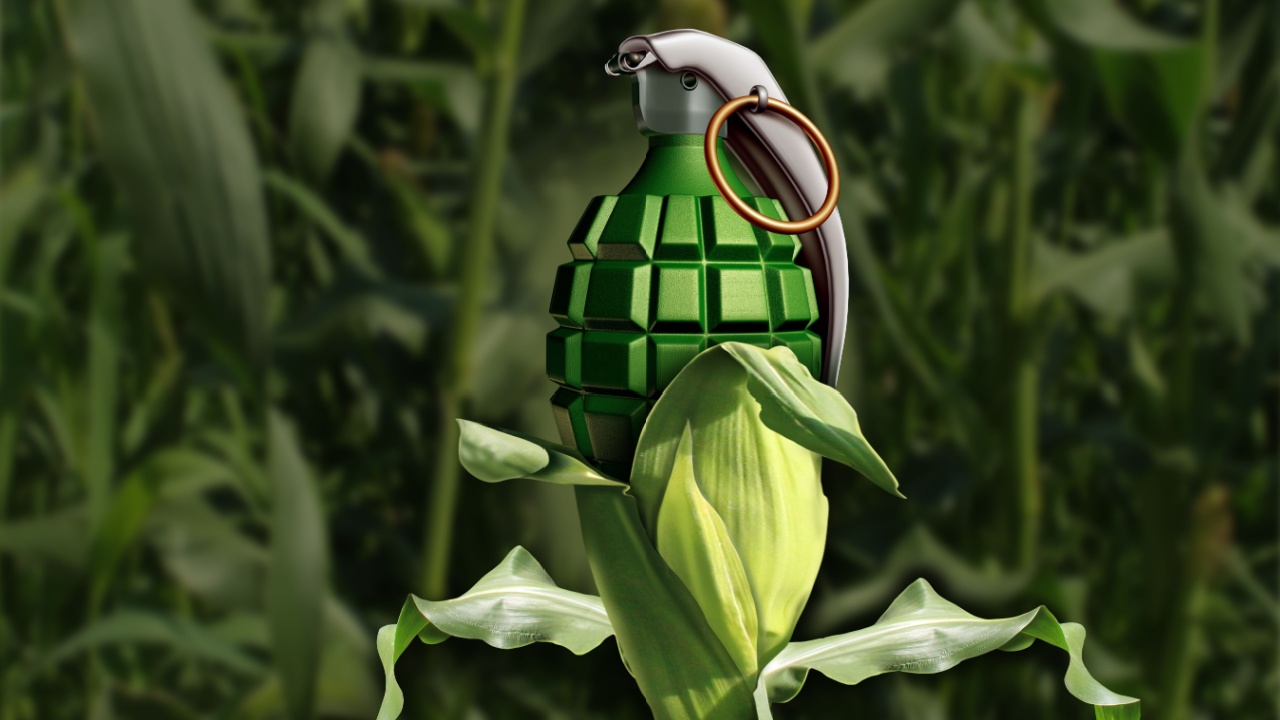
The combination of all these effects would likely lead to mass extinctions. Many species wouldn’t be able to adapt quickly enough to the dramatic changes in their environment. This could disrupt food chains and ecosystems, potentially leading to a collapse of biodiversity similar to what happened to the dinosaurs.
Communication Systems Would Be Disrupted
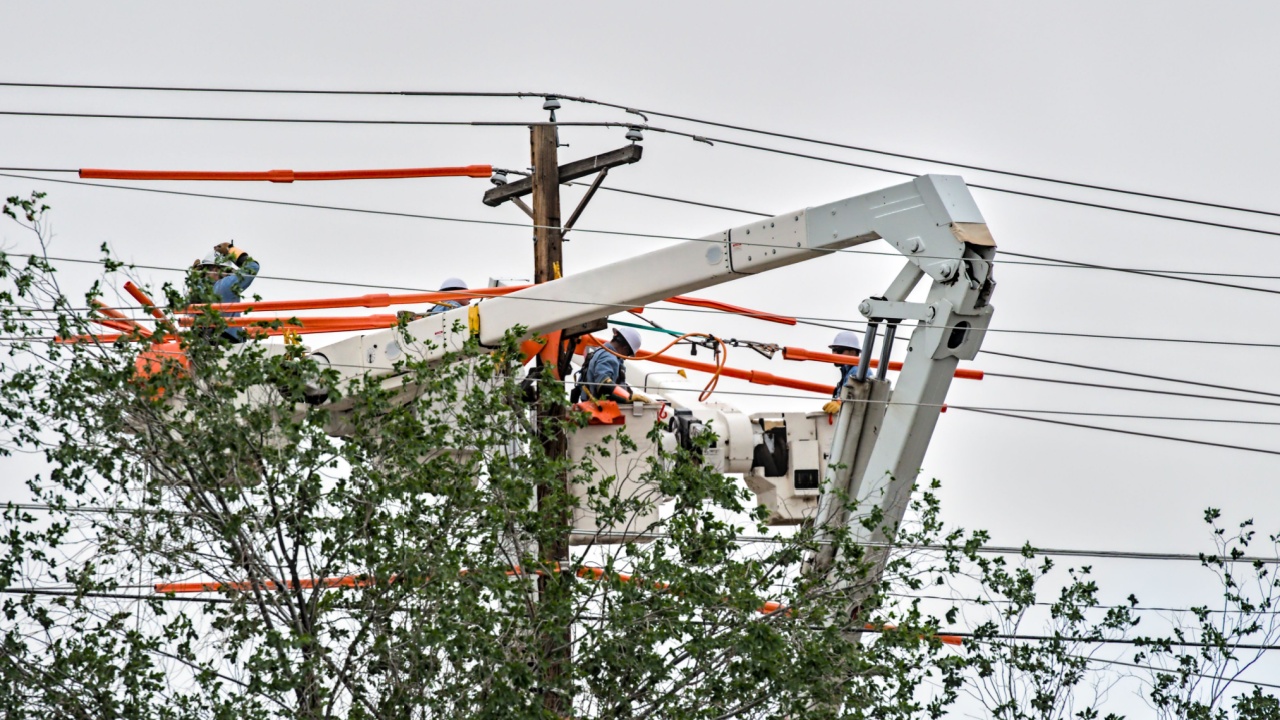
The impact could send out an electromagnetic pulse, similar to what happens in a nuclear explosion. This pulse could fry electronic systems, knocking out power grids, communications satellites, and computer networks. In our highly connected world, this disruption would make coordinating rescue and recovery efforts extremely challenging.
The Planet’s Orbit Might Shift
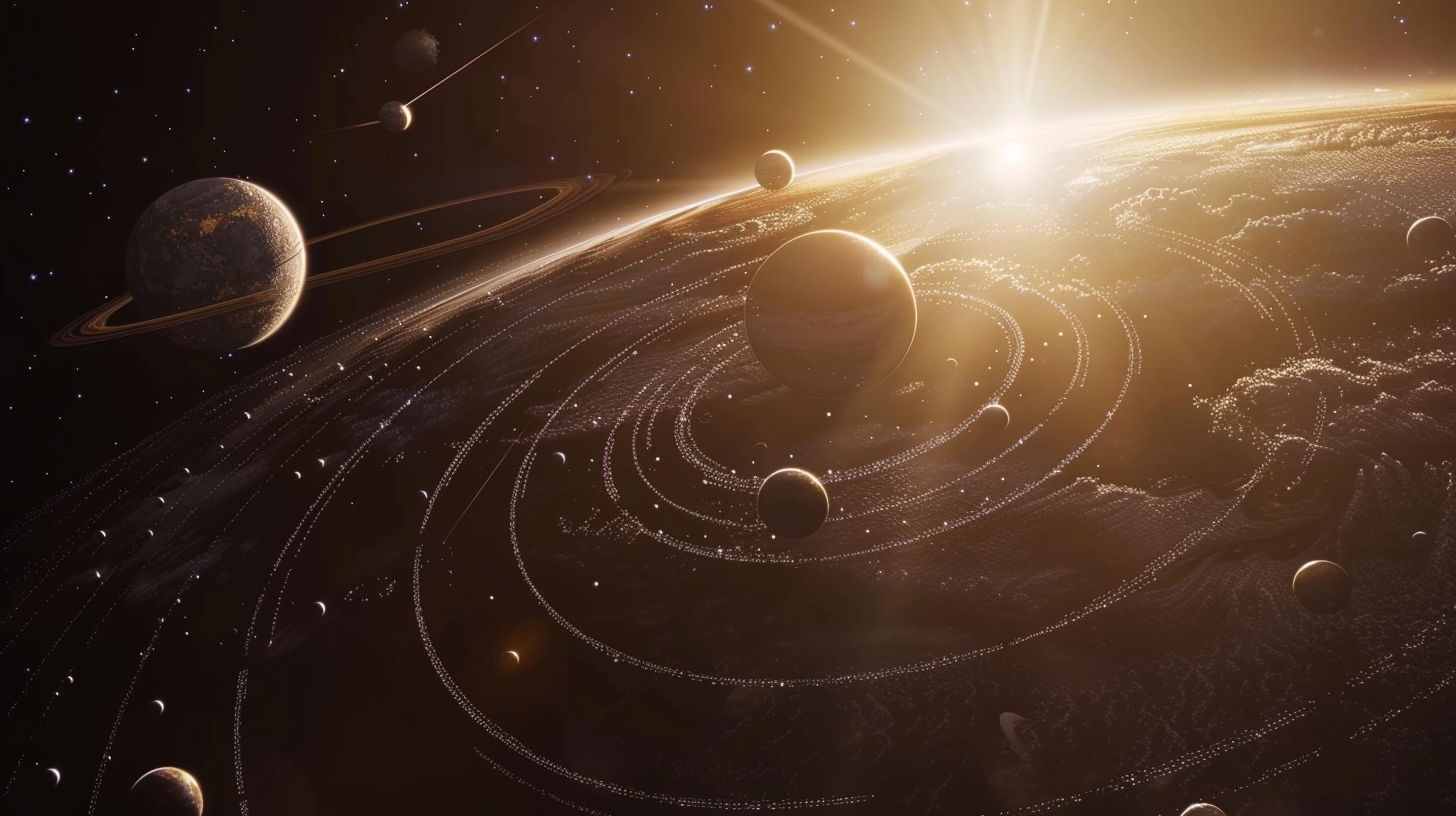
An enormous asteroid could potentially alter Earth’s orbit around the sun. Even a tiny change could have far-reaching effects on our climate and seasons. It might make our planet slightly closer to or farther from the sun, dramatically impacting global temperatures and weather patterns.
Humanity Would Face Unprecedented Challenges

The aftermath of an asteroid impact would test human resilience like never before. We’d face food shortages, climate changes, and the collapse of many societal structures. Survival would depend on our ability to adapt quickly to a radically altered world and work together on a global scale.
Recovery Would Take Centuries
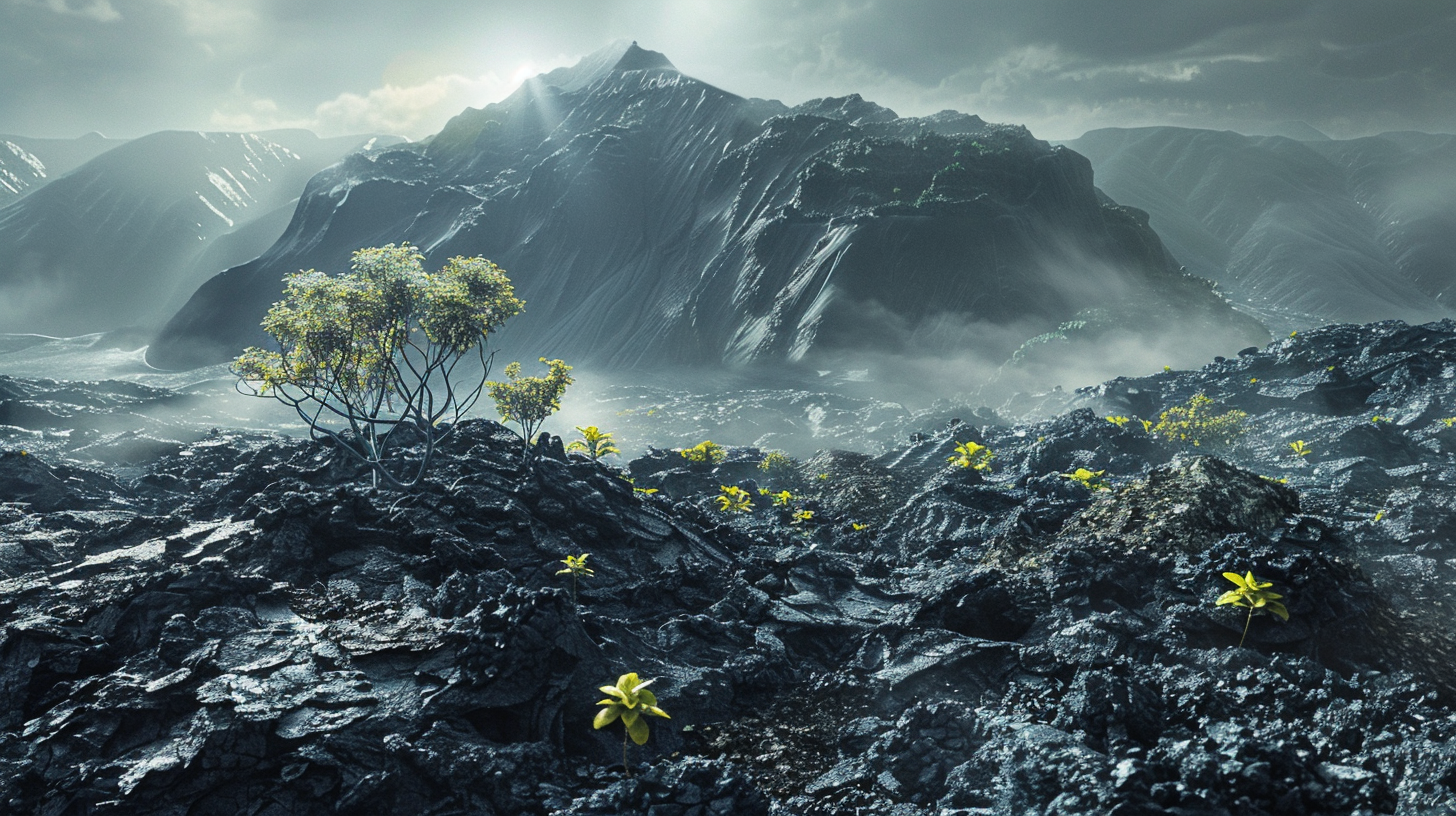
Even if humanity survived the initial impact and its immediate aftermath, the road to recovery would be long. It could take centuries for the Earth to stabilize and for ecosystems to rebuild. The world that emerged would likely be very different from the one we know today.
Katy Willis is a writer, master herbalist, master gardener, and certified canine nutritionist who has been writing since 2002. She’s finds joy in learning new and interesting things, and finds history, science, and nature endlessly fascinating.
